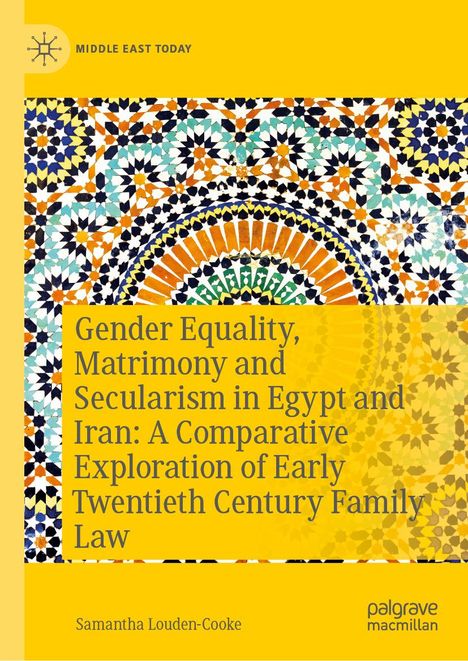Samantha Louden-Cooke: Gender Equality, Matrimony, and Secularism in Egypt and Iran: A Comparative Exploration..., Gebunden
Gender Equality, Matrimony, and Secularism in Egypt and Iran: A Comparative Exploration of Early Twentieth-Century Family Law
(soweit verfügbar beim Lieferanten)
- Verlag:
- Springer, 11/2025
- Einband:
- Gebunden
- Sprache:
- Englisch
- ISBN-13:
- 9783032008459
- Artikelnummer:
- 12332954
- Umfang:
- 184 Seiten
- Gewicht:
- 356 g
- Maße:
- 216 x 153 mm
- Stärke:
- 15 mm
- Erscheinungstermin:
- 16.11.2025
- Hinweis
-
Achtung: Artikel ist nicht in deutscher Sprache!
Klappentext
This book delves into the intricacies of family law in Egypt and Iran in the early twentieth century, highlighting the impact of secular models on individual rights. By understanding the effect of external power structures on the religious / secular identity of the state during this era, readers will gain an understanding of how modes of implementation and colonial engagements shaped family law. Whilst the book explores the impact of the secular nature of the state on gender quality in family law in the from 1900 to 1940, the contemporary vignettes which open the book, provide context regarding the impact of power structures, such as the state, on individual agency. The use of contemporary issues to introduce an historically focused book provides a unique way to encourage reflections upon state trajectories, the importance of external influences, and the modes of resistance which have transcended the last century. This book argues that, within the context of early twentieth century Egypt and Iran, secularism contributed towards government and civilian responses to (non) secular changes in law and society, whilst simultaneously reinforcing already existing power structures as the frameworks within which parts of society will continue to function. While family law remains firmly within a religio-legal jurisdiction, secularism did have an impact on through linguistic and cultural engagements. Bringing together intersecting factors such as gender equality, family law, colonialism, secularism and religion, it provides insights into the close-knit relationship of the public and private spheres. Moreover, it contributes empirically by focusing exclusively on two states which have, as far as the literature indicates, never been solely compared.

